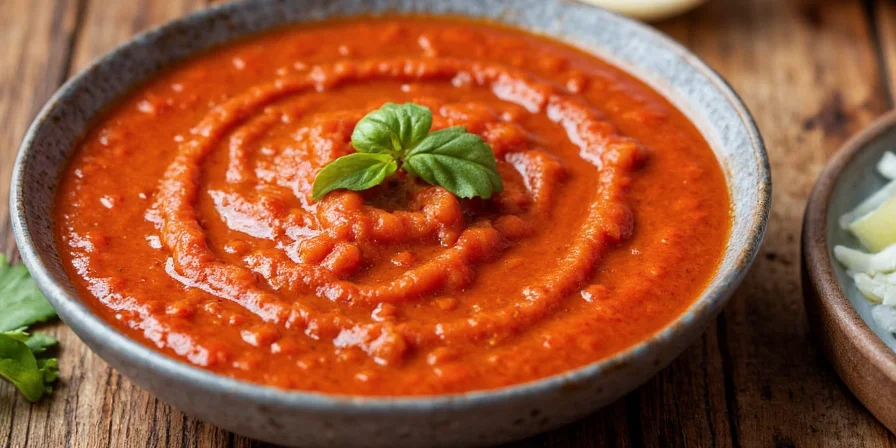Arbol Sauce: A Flavorful Journey Through Global Spice Traditions
When it comes to elevating culinary experiences, few ingredients can match the robust flavor and versatility of arbol sauce. Originating from Mexico, this vibrant sauce encapsulates the rich tapestry of global spice traditions. In this blog, we will explore the origins, ingredients, preparation methods, and culinary applications of arbol sauce, all while diving into the broader world of spices that make this sauce a beloved favorite.
What is Arbol Sauce?
Arbol sauce is a spicy, tangy condiment made primarily from dried arbol chilies, which are known for their fiery heat and deep red color. This sauce is often used to enhance a variety of dishes, from tacos to grilled meats, and even as a dipping sauce for snacks.
The Ingredients of Arbol Sauce
- Dried Arbol Chilies: The main ingredient, these chilies provide a distinctive heat and flavor.
- Tomatoes: Fresh or roasted tomatoes add a natural sweetness and depth to the sauce.
- Garlic: Adds a savory undertone that complements the heat of the chilies.
- Onion: Offers a subtle sweetness and enhances the overall flavor profile.
- Lime Juice: Provides acidity, balancing the heat and enriching the sauce's flavor.
- Salt: Enhances all the flavors and is essential for preservation.
The History of Arbol Sauce
Arbol chilies have been cultivated in Mexico for centuries, playing a vital role in traditional Mexican cuisine. The use of chilies in sauces dates back to ancient civilizations, where they were not only valued for their flavor but also for their medicinal properties. Over time, the combination of arbol chilies with other ingredients evolved into what we now recognize as arbol sauce.
The Global Influence of Arbol Sauce
While arbol sauce is deeply rooted in Mexican culinary traditions, its influence has spread across the globe. As Mexican cuisine gained popularity in various parts of the world, so did this spicy condiment. Today, arbol sauce can be found in fusion dishes that combine elements of Mexican cuisine with flavors from other culinary traditions.
How to Make Arbol Sauce at Home
Making arbol sauce at home is a straightforward process that requires minimal ingredients. Here's a simple recipe to get you started:
Ingredients
- 10 dried arbol chilies
- 2 medium tomatoes
- 2 cloves of garlic
- 1 small onion
- Juice of 1 lime
- Salt to taste
Instructions
- Prepare the Chilies: Remove the stems and seeds from the dried arbol chilies. Toast the chilies in a dry skillet over medium heat for about 1-2 minutes until they become fragrant but not burnt.
- Roast the Vegetables: In the same skillet, add the tomatoes, garlic, and onion. Roast until the tomatoes are blistered and the onions are translucent.
- Blend the Sauce: In a blender, combine the toasted chilies, roasted vegetables, lime juice, and salt. Blend until smooth. If the sauce is too thick, add a little water to reach your desired consistency.
- Taste and Adjust: Taste the sauce and adjust the seasoning if necessary. You can add more lime juice for acidity or more chilies for heat.
- Store: Transfer the sauce to a clean jar and store it in the refrigerator. It can last for up to two weeks.
Culinary Applications of Arbol Sauce
Arbol sauce is incredibly versatile and can be used in a variety of dishes:
- Tacos: Drizzle arbol sauce over tacos to add a spicy kick.
- Marinades: Use arbol sauce as a marinade for grilled meats, chicken, or fish.
- Dipping Sauce: Serve arbol sauce alongside tortilla chips or fresh vegetables as a flavorful dip.
- Soups and Stews: Incorporate arbol sauce into soups and stews for added depth and heat.
- Pizza: For a spicy twist, drizzle arbol sauce over pizza before serving.
Health Benefits of Arbol Sauce
In addition to its delicious flavor, arbol sauce also offers some health benefits:
- Metabolism Boost: The capsaicin found in arbol chilies may help boost metabolism and promote weight loss.
- Rich in Antioxidants: Tomatoes and chilies are rich in antioxidants, which can help combat oxidative stress.
- Anti-Inflammatory Properties: The ingredients in arbol sauce can have anti-inflammatory effects, which may help reduce inflammation in the body.
Exploring Global Spice Traditions
Arbol sauce is just one example of how spices play a fundamental role in global cuisine. Around the world, different cultures utilize unique spices and preparation methods to create sauces that reflect their culinary heritage.
| Region | Popular Sauce | Main Ingredients |
|---|---|---|
| Asia | Sambal | Chilies, garlic, vinegar |
| Middle East | Harissa | Chilies, garlic, spices |
| Italy | Pesto | Basil, garlic, pine nuts |
| India | Chutney | Fruits, spices, vinegar |
Conclusion
Arbol sauce is a testament to the beautiful interplay of flavors and traditions that spices can bring to our tables. Whether you are a seasoned chef or a home cook, incorporating arbol sauce into your dishes can transform your meals into flavorful experiences. As we continue to explore the diverse world of spices, let us celebrate the richness that sauces like arbol bring to our global culinary heritage.

For more delicious recipes and culinary inspiration, stay tuned to our blog!










 浙公网安备
33010002000092号
浙公网安备
33010002000092号 浙B2-20120091-4
浙B2-20120091-4